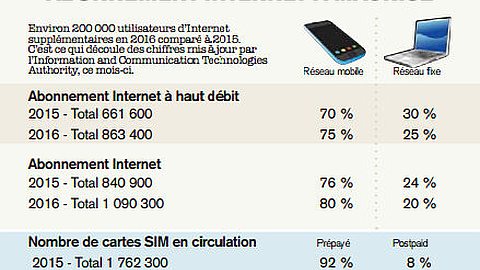AfriNIC: From IPv4 to IPv6
The adoption of the new Internet Protocol version 6 (IPv6) will mark a very important change in the whole landscape of Internet in the African region.
The African Network Information Centre (AfriNIC), one of the five Regional Internet Registries (RIRs) in the world, held a press conference on Tuesday at its headquarters in Cybercity, Ebène to explain the implications of this change and the way forward.
IP addresses are crucial for the Internet to function as they facilitate the interconnection between the devices and systems.
The operation of the Internet has so far been possible through the use of IPv4 protocol of network communication.
However, the number of addresses available to the network operators under the IPv4 will soon get exhausted. The last blocks of IPv4 addresses have recently been allocated to the five RIRs in an equal way and each of these blocks represent about 16.7 million possible addresses that are expected to run out soon.
Since this situation was expected, measures have been taken by the relevant bodies to prepare for Internet continuity.
“We anticipated the exhaustion of IPv4 and the new protocol IPv6 has thus been designed by the Internet Engineering Task Force to ensure the continuity of Internet in the region,” said Adiel Akplogan, chief executive officer of AfriNIC.
The AfriNIC, whose role is to allocate IP addresses to the operators in African region, is expected to be the last RIR to run out of IPv4 space. “The Internet penetration is still very low in Africa. Due to the limited time, we therefore have to focus on post exhaustion. As such, IPv6 will help to safeguard the development of the Internet,” added Akplogan. He pointed out that government should encourage network operators to adopt IPv6 and end users should make sure that servers are IPv6 compatible.
Dr Viv Padayatchy, chairman of AfriNIC, highlighted that the number of devices is no longer restricted to computers but to other equipment. “Africa was late in the adoption of the Internet. We should not make the same mistake with IPv6,” he said.





